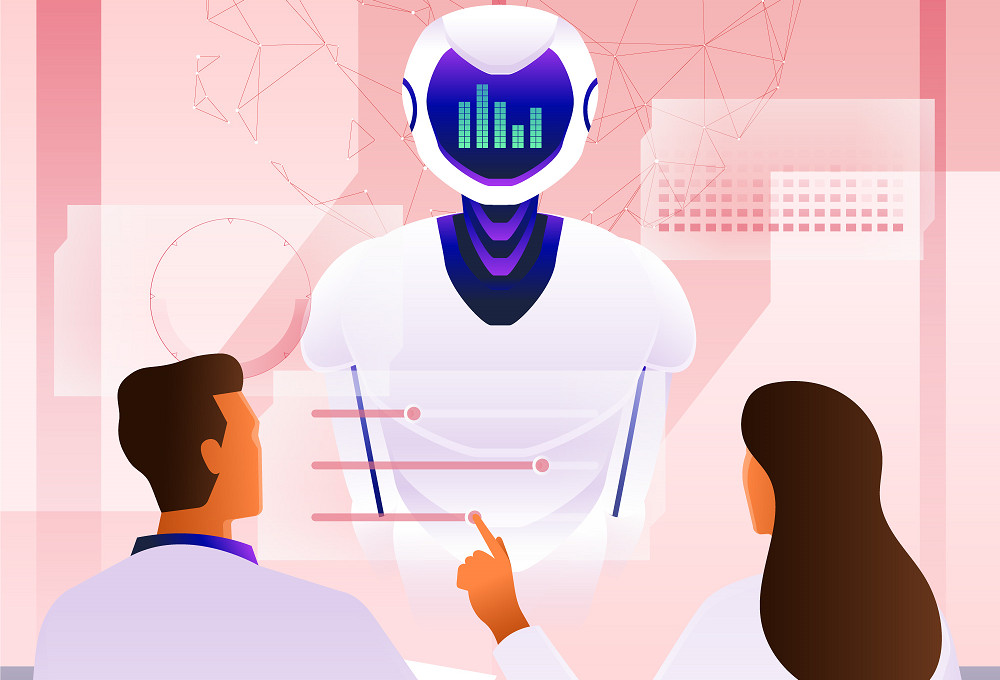Reviews
Future-Proof Your Career: Why AI Skills Matter (Even If You’re Not a Techie)

As artificial intelligence (AI) becomes an increasingly common fixture in everything from marketing campaigns to customer service chatbots, one thing is clear: you don’t need to be a software developer to benefit from understanding AI. Whether you’re a marketer looking to sharpen your ad targeting skills or an HR professional who wants to streamline recruiting, AI literacy can set you apart in a job market where technology is transforming nearly every industry.
AI’s Growing Influence in the Workplace
Across sectors like finance, healthcare, and education, AI tools are automating repetitive tasks and bringing new data insights to the forefront. This shift is often framed as an opportunity to reduce manual workloads and allow professionals to focus on higher-level problem-solving. It’s also a powerful reason for non-technical professionals to get acquainted with AI fundamentals.
“AI isn’t just for coders or engineers,” says Andrea Pecetto, Chief Commercial Officer and Head of Educational Partnerships at WeUni, an orientation hub that connects students worldwide with accredited bachelor’s, master’s, and doctoral programs. “Many of the people enrolling in AI-related courses aren’t planning to become data scientists; they simply recognize that basic AI skills have become an integral part of modern business.”
These basic skills often include interpreting AI-driven analytics, using AI-powered platforms to improve efficiency, and understanding the ethical implications of automated decision-making. As organizations rely more heavily on algorithms and predictive models, employees who can use and interpret these tools effectively gain a distinct advantage.
Skills and Opportunities for the Non-Technical Professional
One misconception that holds many people back from learning AI is the belief that they must master coding. In reality, while programming knowledge can be helpful, it’s often enough to develop conceptual familiarity—knowing how AI systems work, what they’re capable of, and where ethical pitfalls may lie.
Professionals in diverse fields are discovering how AI can streamline their daily tasks. Marketing teams might use AI to predict consumer trends and optimize ad spending. Recruiters can employ AI-driven applicant tracking systems to sift through thousands of résumés, helping them identify promising candidates more quickly.
“We built AI Humanize precisely because we saw non-technical users wanting to harness AI’s potential without getting lost in the technology,” explains Robert Brown, co-founder at AI Humanize, a startup dedicated to converting AI-generated text into human-like content. “By removing some of the complexity and emphasizing responsible, empathetic AI usage, we’re showing that innovation can be accessible to anyone—no coding required.”
Addressing Ethical Considerations and Responsible Use
As AI tools become more ubiquitous, questions about transparency, accountability, and fairness grow louder. Bias in algorithms can perpetuate stereotypes or unfairly influence decisions in hiring, lending, and beyond. This is why an essential part of AI education involves not just learning how the technology functions but also examining its societal impact.
Andrea notes that many educational programs are weaving AI ethics into their curricula as a core component. “Students and professionals alike need to understand the broader context of AI. It’s not enough to know what an algorithm does; we also have to consider how it might unintentionally harm or exclude certain groups.”
Robert echoes this sentiment by highlighting AI Humanize’s commitment to conscientious design. “We want to empower users with AI, but we also want to ensure they’re aware of how it can be misused. Building guardrails is a big part of ensuring AI remains an asset, not a liability.”
Taking the Next Step—How to Get Started
If you’re ready to explore how AI can elevate your own career—no matter your field—there are a few practical steps to consider:
- Assess Your Current Role
Identify the specific tasks or processes that AI could enhance. For instance, is there a manual process that eats up time? Are there data insights you can’t easily extract? - Seek Out Educational Opportunities
Platforms like WeUni can help you discover accredited courses or degree programs that focus on AI fundamentals. Even short online certifications can provide valuable skills. - Experiment with No-Code Tools
A growing number of user-friendly platforms let you plug in your data, tweak a few settings, and harness AI-driven analytics or content creation without writing a line of code. - Stay Informed and Practice Responsible AI
Follow ethical guidelines and industry best practices. Keep up with the latest news, explore case studies, and don’t be afraid to ask questions about how AI is being used in your workplace.
Conclusion
AI literacy has evolved from a nice-to-have skill into a core component of modern business success. By investing time in learning how AI works—and understanding its ethical dimensions—you can gain a competitive edge, regardless of your professional background. As Andrea Pecetto at WeUni puts it, “In today’s job market, AI-savvy professionals stand out not because they’re programmers, but because they embrace technology to solve problems in creative, responsible ways.”
AI’s future holds countless possibilities, from advanced natural language processing to personalized learning experiences. Getting comfortable with AI today sets you on a path to adapt, grow, and lead in the workplaces of tomorrow.

-

 World6 days ago
World6 days agoEthiopian volcano erupts for first time in thousands of years
-

 Legal3 days ago
Legal3 days agoUtah Amber Alert: Jessika Francisco abducted by sex offender in Ogden
-

 US News2 days ago
US News2 days agoExplosion destroys home in Oakland, Maine; at least 1 injured
-

 Health3 days ago
Health3 days agoMexico’s September human bird flu case confirmed as H5N2
-

 Legal1 week ago
Legal1 week agoSuspect in San Diego stabbing shot by authorities after fleeing into Mexico
-

 Health1 week ago
Health1 week agoMarburg virus outbreak in Ethiopia grows to 6 confirmed cases
-

 World1 week ago
World1 week agoU.S. sanctions companies and vessels accused of aiding Iranian military oil sales
-

 World3 days ago
World3 days agoWoman killed, man seriously injured in shark attack on Australia’s NSW coast



